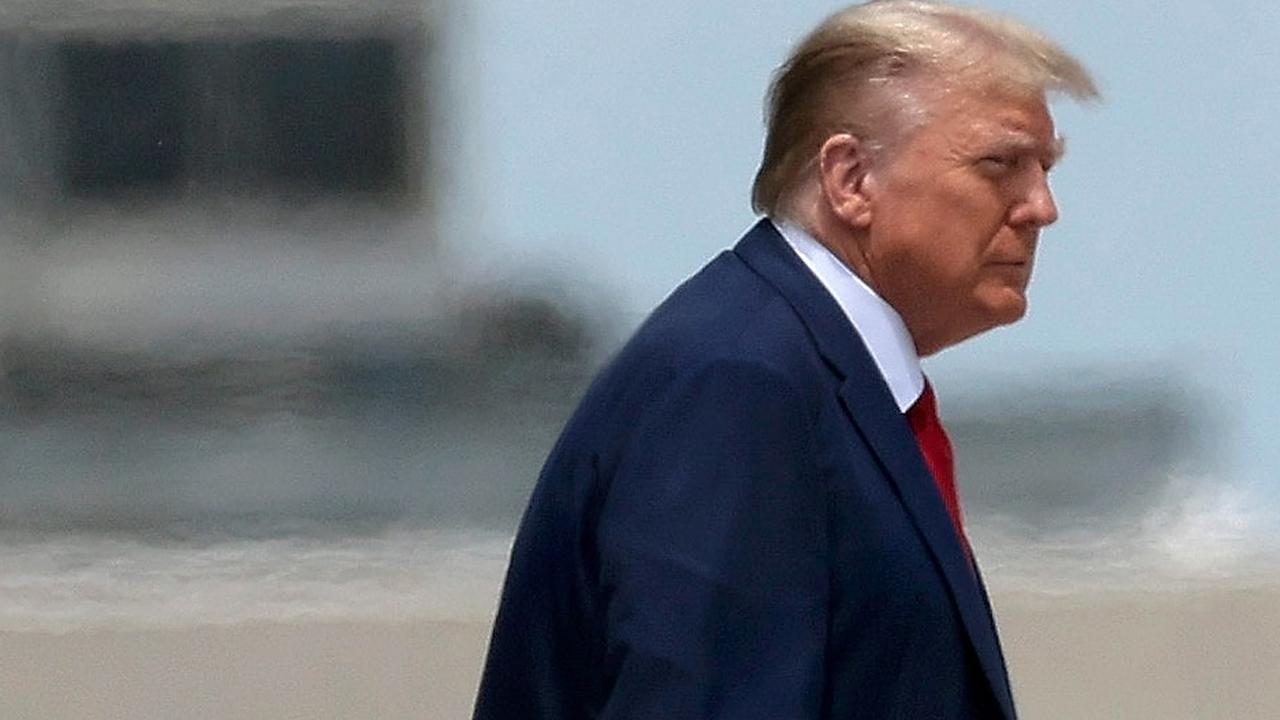[ad_1] Donald Trump has suffered a new frustration in the hours before his appearance at a Florida court, failing in his last-minute attempt to recr
[ad_1]
Donald Trump has suffered a new frustration in the hours before his appearance at a Florida court, failing in his last-minute attempt to recruit a new lawyer to represent him.
Mr Trump is expected to be arraigned at a federal courthouse in Miami at 3pm on Tuesday, local time (5am AEST).
His appearance will likely be brief. The charges against him will be presented, and he will be asked to enter a plea. Most defendants are also fingerprinted and photographed, though in this case we do not expect there to be a mugshot, nor for him to be handcuffed.
Judge Jonathan Goodman, who will oversee the hearing, may set bail. Theoretically, Mr Trump could be detained until his trial, though this is extremely unlikely, as he is not much of a flight risk, given his profile and the constant presence of his Secret Service protection.
“The judge will consider the bail issue, but I would be stunned if Trump were held pending trial,” former prosecutor Barbara McQuade told The Guardian.
“A more likely scenario is that Trump will be ordered to surrender his passport and promise to pay some sum of money if he fails to appear.
“The court may consider as a condition of bond some sort of gag order prohibiting Trump from discussing the case, the prosecutor or the judge, but that can be tricky.”
The case against him, which marks the first time a US president has ever faced criminal charges, concerns his alleged illegal retention of sensitive national security documents after he left office in January of 2021 and became a private citizen.
Prosecutors allege Mr Trump took the documents, which belonged to the government, not him, and stored them at his residences in Florida and New Jersey. It further alleges that he failed to return the documents when repeatedly asked, showed some of them to people who lacked the necessary security clearances, defied a subpoena, and lied to investigators, falsely claiming he had in fact returned all the relevant material.
The FBI raided his Florida residence, Mar-a-Lago, last August, where prosecutors allege boxes full of sensitive government documents were found, some with markings indicating they were highly classified.
Mr Trump has been charged with 31 counts of wilful retention of national defence information, and one count each of conspiracy to obstruct justice, withholding a document or record, corruptly concealing a document or record, concealing a document in a federal investigation, scheme to conceal, and false statements and representations.
If convicted, he could face a prison sentence.
Mr Trump reportedly spent Monday afternoon trying to find a local lawyer to join his legal team. Extraordinarily, given his status as a former president and the high profile of his case, he failed to find a willing candidate.
Multiple people were interviewed for the role. US media reports that several ultimately decided to decline it.
As a result, Mr Trump will have to make do with his two existing lawyers, former federal prosecutor Todd Blanche and a former Florida solicitor-general, Chris Kise.
He has also reportedly been unable to find a specialist national security lawyer, which is a problem, because part of the case involves information that requires a security clearance.
According to The Guardian, which was able to glean information about the lawyers Mr Trump interviewed, the candidates’ concerns extended both to his reputation as a “notoriously difficult client” who ignores advice and ethics rules, and “the perceived reputational damage” they themselves could suffer by representing him.
The indictment against Mr Trump was revealed in full on Friday. It alleges that he stored documents in Mar-a-Lago’s “ballroom, a bathroom and shower, an office space, his bedroom, and a storage room”. There are photos of boxes being stored in these locations.
It says the documents in question included “information regarding defence and weapons capabilities of both the United States and foreign countries, United States nuclear programs, potential vulnerability of the United States and its allies to military attack, and plans for possible retaliation in response to a foreign attack”.
[ad_2]
Source link



COMMENTS